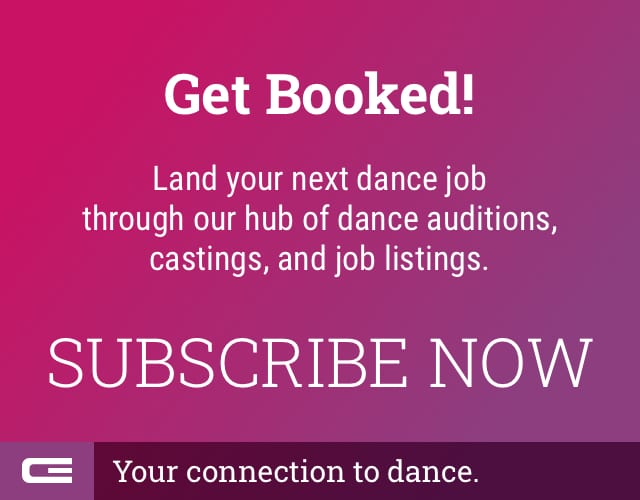On a quiet October morning, in the cold metal chairs of a nearby Starbucks, I met with Chris Whitaker, a certified financial planner and accredited investment fiduciary, otherwise known as a CFP and an AIF (translation: he’s basically top brass in the finance industry). As we ordered our drinks, a long line began to develop behind us full of businessmen and women who were dressed in white and black. I couldn’t help but feel like a stranger in a strange land. I’m used to talking to dancers operating on a dancer salary, or being around other artists when I’m working; but money management was new territory for me. In fact, it reminded me of why I wanted to do this interview in the first place.
Why should this feel like a strange place for me? Why do the surroundings of corporate finance buildings intimidate me? I make money too; I should be just as confident about my financial fitness as these men and women ordering their pumpkin spice lattes with almond milk. But I couldn't help feeling like they knew more about money than me; It’s like they have secret knowledge about retirement accounts, taxes, and mutual funds. It’s as if they’ve created a secret treehouse and a sign that says “No Artists Allowed” is nailed to the door. Well frankly, it’s time to bust down the doors and get some answers. It’s time for dancers, instructors, and anyone who considers themselves a part of the industry to get smart about their money!
Turns out if you want answers, all you have to do is ask. Now you’re probably wondering how I know this financial expert who works all the way at the top in the Irvine business district. Well, this CFP/ AIF happens to be my older brother and my most trusted financial advisor. He’s been helping me make smart financial decisions for some time - however, chatting with him made me realize I could be making even better decisions about my money. And I think it's important for you, too!
I started strong.
KEIRA: How much should a dancer be making? It's a complication question.
CHRIS: Well, how much are their expenses? You need to work backward because it depends on the lifestyle someone chooses.
I thought about this for a second and decided to come up with some hypothetical numbers.
Let’s say someone has $3,000 a month in bills.
Someone who grosses $40,000 a year in 2018, living in California, would have $32,704 dollars of after-tax spending. They would have to pay $7,296 in taxes. They would pay $3,170 in federal taxes, $3,060 in FICA, and $1,066 for California State Taxes. That’s for a full year. That means you’d have to make more than $40,000 to have $3,000 a month. You would need at least $44,432 gross income to be spending $3,000 a month in California.
It took me a second to take that in. After all, this applies directly to me, and without getting too personal... let’s just say I’ve got some income growth to work on (anyone else?). I also talked with some of my friends after the interview and discovered most were grossing around $30,000. It seemed that I was not the only one.
It seems that around February I hear most of my friends complaining about taxes. Some aren't even sure what they really are, or how to file them. As artists, most of us receive a 1099 at the beginning of the year. So, this begged the question:
What is a 1099?
A 1099 is the form you receive when you are a private contractor. It’s a report that shows the various types of income that someone got throughout the year. Two of the most common are 1099 and W-2s. If you receive a W-2 the payroll taxes are automatically deducted from your paycheck, but if you’re a 1099 employee you’re responsible for calculating your taxes on your own.
How do you set aside the money, and how much do you set aside?
You need a system that allows you to pay quarterly, that way you don’t pay any underpayment penalties. You could take the time to research the information on IRS.gov. You could read it and study it, and try to figure it out. Or you could pay a small fee for tax software to do it for you. You could probably make the money to pay for the tax software in the time that it would take you to figure it out for yourself.
Software like Intuit QuickBooks is great for private contractors. I have actually been using this system for a while because it also calculates my mileage when I am driving - I highly recommend.
I decided to bring up a hypothetical situation that many artists can relate to. Because many of us go from gig to gig, I figured this was a fair question…
I’m living paycheck to paycheck. How do I start to save?
Number one, make it automated- because when you start to make more you start to spend more, and the best way to avoid that is to automate your savings. Most people need to remove the hurdles that are in the way of saving money, and automating money into your savings account every paycheck is a great step forward.
Side note: I went to my bank account online and automated my savings right after my interview. It took me approximately 30 seconds, seriously.
Retirement. It's a word most dancers haven't started thinking about yet. But it's important!
How do I plan for retirement?
The first step…you need cash reserves. You need 3 to 6 months of expenses saved, and maybe more if your work is volatile.
What do you mean volatile?
If you’re going gig to gig and you get injured, or the studio you’re working at goes under, you may want 6 months of expenses saved so that you can get back on your feet. For example: If your expenses are $2,000 a month you would probably want $6,000 to $12,000 saved. The next step is to start paying off your high-interest debt. For example, most credit cards have a high-interest rate, so you want to pay those off before you start investing in a retirement account.
So what do you do after they’re paid off?
If you happen to work for an employer who has a retirement account that has an employer match, or a match to the contribution you add to the account, then I would put in what you have to put in to get that free money. So hypothetically if an employer matches up to 3% of an employee’s pay at .50 cents on the dollar, then that person should put in a minimum of 6% of their paycheck to receive the max matching contribution of 3%. This is usually called a 401K, but is sometimes called a SIMPLE IRA.
And what if they don’t have a 401K option?
Anybody with earned income can open an IRA (individual retirement account) online at any of the major discount brokerage companies such as Fidelity, Charles Schwab, E-Trade, TD Ameritrade. It’s free to open an account and you can do it online very quickly. In a lot of situations, it sounds like a Roth IRA would be a good choice because you put the money in tax-free and it comes out tax-free. Anyone under age 50 can put in up to 5500 dollars a year. And you want to try and put that amount in your account every year. And let's say you max out your IRA for 35 years at 8% interest, that money would compound to $1,059,859.21… tax-free.
This freaked me out. He basically just told me I could retire a millionaire if I got better at this retirement thing. I decided to let that information settle in the air for a moment. Those numbers just sort of fell out of his mouth as if they were a part of a normal conversation, but for me those numbers still make me want to baby barf a little with excitement. I get pumped when I find a $5 bill in my jeans, so wrapping my mind around a million dollars was a bit of a stretch.
---
So, dancers - money can seem overwhelming, but it's not too much for you to handle! “Where can I learn more?”
Want to learn more? Read Rich Habits by Thomas C. Corley and The Compound Effect by Darren Hardy.
(I bought both on Audible that evening.).
In conclusion:
- Calculate backward from what you should be making after taxes in order to meet your living expenses.
- If you are a private contractor receiving a 1099, you should be paying taxes quarterly and using a tax software to help you organize your deductions.
- Your savings should be automated monthly. You can set this up online.
- Check and see if your employer offers a retirement account that matches your contribution. If they do not, open a Roth IRA account with one of the online companies suggested.
- If you’re looking to further your financial knowledge, read “Rich Habits” or “The Compound Effect.”




